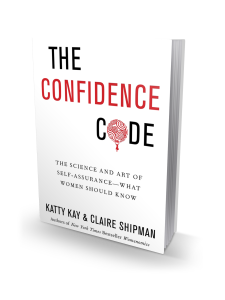 The Confidence Code: The Science and Art of Self-Assurance—What Women Should Know
The Confidence Code: The Science and Art of Self-Assurance—What Women Should Know, by Katty Kay and Claire Shipman, carries an important message – one that is directed toward women but can also resonate with many men. Unfortunately, the message is often oversold and supported by questionable research.
The book’s key message is that women in general have and exhibit less confidence than men in general, and this holds them back in so many fields because confidence is strongly correlated to achievement and influence. It’s so pervasive that even some the most successful women in the world, such as Christine Lagarde, head of the IMF, and Monique Curry of the WNBA, suffer from it. As Curry puts it, while even the lowliest benchwarmer on the men’s team has as an ego as big as the starters, even the women stars can easily get their confidence shaken.
This general lack of confidence is enormously costly, because women in general ask for less in salary negotiations and tend to make failure a self-fulfilling prophecy by not even applying for positions or entering contests unless they are highly certain to succeed.
The book makes a persuasive case that both nature and nurture contribute to womens’ lower confidence levels, and in its sixth chapter details several recommendations for a “cure”. The key recommendation they give, is “When in doubt, act.” Most importantly, women are urged to fail fast, to take action despite their hesitation, and if they fail, learn from it and move on. They are taught to reframe negative thoughts with positive alternative explanations, and to focus on acting and speaking up not for themselves, but on behalf of others.
One technique readers are explicitly told not to us is “fake it “til you make it”, because supposedly that quickly becomes obvious to others. That’s rather ironic, because the authors seem to have ignored that advice in some of their statements. Here’s one example. They relate experiments with 15,000 sets of twins in Britain that found that student’s self-perceived ability rating was an even more important predictor of achievement than IQ, and draw the conclusion this conclusion: “Put simply, confidence trumps IQ in predicting success.”
In reading books of this type, I’ve developed the habit of taking sweeping statements like that with a grain of salt, so I turned to their footnotes to read the original citation. The paper had nothing to do with the assertions made in the book (and I read through it twice because of my own lack of confidence).
That said, should you read this book? If you are a woman who finds it distasteful that less-qualified men are getting promotions because they speak up more in meetings and tend towards overconfidence in their conclusions, this book will help you by letting you see it’s OK to be more like them, and that you are not alone. In fact, if you’re a man who feels the same way, you can also profit from this book, because the prescriptions will probably work for anyone. If you’re a man who doesn’t lack confidence, but you have a daughter, you definitely should read it, and buy her a copy also.
On the other hand, I am quite confident that you could also get almost as much out of reading this article in The Atlantic, which summarizes the book quite nicely


